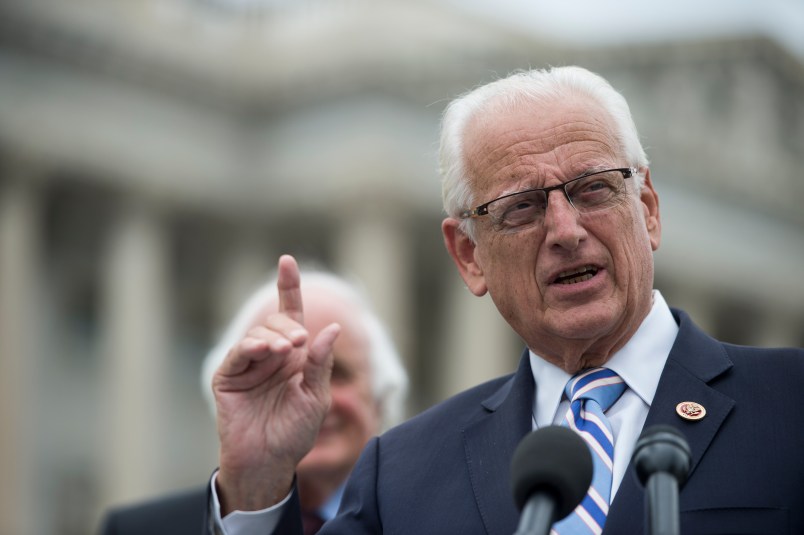As the Treasury Department continues to stall on a request for Trump’s tax returns from the House Ways and Means Committee, House Democrats on Monday laid out their likely path forward for gaining access to the documents.
Rep. Judy Chu (D-CA) told reporters on a press call that if the IRS does not comply with Ways and Means Committee Chair Richard Neal (D-MA)’s request for Trump’s tax info, he “would likely issue a subpoena.” Should that be refused, “a legal battle would begin to assert Congress’s legislative authority.”
Chu framed the potential litigation as separation-of-powers issue, looking at “whether the president is subject to the law and congressional oversight.”
The remarks came just as Trump personal attorney William Consovoy sent a second letter to Treasury Department general counsel Brent McIntosh, saying that Congress has “no constitutional authority to act like a junior-varsity IRS.”
“Chairman Neal’s request is nothing more than an attempt to exercise constitutional authority that Congress does not possess,” Consovoy wrote in the Monday letter, which followed an April 5 missive also urging the Treasury to rebuff Neal’s request.
Neal asked for six years of Trump’s personal and business returns in an April 2 letter to IRS Commissioner Charles Rettig.
The request has set up a legal battle, with Trump and his Republican allies fighting to prevent House Democrats from launching a sweeping investigation of his finances.
Trump’s allies have argued that Congress is overstepping its bounds in asking for the president’s personal financial information. Yet Rep. Bill Pascrell (D-NJ) argued on Monday that “Richard Neal was very specific and very narrow in his first letter.”
The scope of the request appears designed to have the highest chance of prevailing in the court battle anticipated to emerge.
Treasury Secretary Steve Mnuchin failed to meet an April 9 deadline for Neal’s request, telling Ways and Means that his department was reviewing it along with the Justice Department.
Neal replied on Saturday with a new deadline, April 23, for the Treasury to furnish Congress with the requested information.






